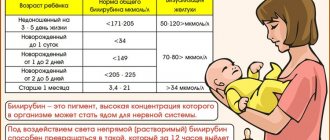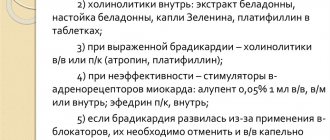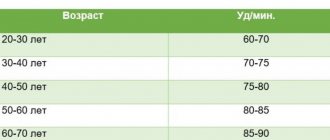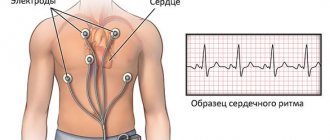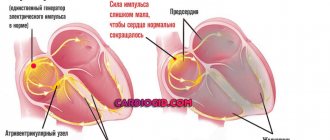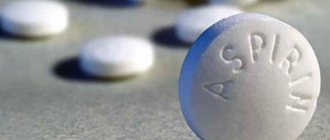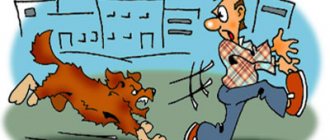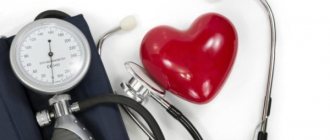Nowadays, many people have problems with the functioning of the cardiovascular system. Often, with these pathologies, the heart rate increases - the pulse increases. Doctors distinguish between physiological and pathological increases in heart rate, so if a person suspects that his heart is not working properly, it is better for him to immediately consult a doctor.
Alexander Yuryevich Shishonin, a general practitioner, candidate of sciences, specialist in the field of cardiovascular diseases, and organizer of the “Club of Former Hypertensive Patients,” talks about pulse rates and why people develop tachycardia.
When the heart asks for help
Timely diagnosis of diseases often plays a decisive role, especially when it comes to cardiac problems. The sooner an accurate diagnosis is made, the sooner the correct treatment can be prescribed. It is very important to be attentive to your heart and consult a doctor if any signs of trouble appear. Tachycardia is an increase in heart rate above normal. In some cases, it is one of the signs of heart disease.
Contact your doctor if you experience the following symptoms:
- you have already been diagnosed with some form of tachycardia, but you have not contacted a cardiologist for further observation and/or treatment
- periodic palpitations
- chest pain, heart pounding
- difficulty breathing, feeling of lack of air
- pre-syncope or fainting (even without discomfort in the heart area)
- dizziness
- When counting your pulse at home, you independently detected a pulse rate of 90 beats per minute or more
- increase or decrease in blood pressure
- the presence of cardiac diseases in you or in your relatives.
Even if you have experienced an attack of tachycardia for the first time, contacting a doctor is considered mandatory.
Complaints of palpitations are a serious reason for urgent examination. At the EXPERT Clinic, patients are treated by doctors with extensive experience. The most modern diagnosis of heart rhythm disturbances is possible.
Physiological indicators of heart rate in people of different ages
Before looking for an answer to the question: “How to lower a high heart rate?”, You need to make sure that you really have a problem with this. Physiological parameters of the heartbeat can vary over a significant range. They are individual for each person.
Note.
The heart rate of the fairer sex is slightly higher than that of men. Small deviations from the norm may be observed, but they must be due to the individual characteristics of the body.
Causes of rapid heartbeat
There is a natural (physiological) tachycardia, when a rapid heartbeat occurs in response to some kind of physical activity, severe stress and emotional stress, with an increase in body temperature, etc. In this case, the heart rhythm returns to normal on its own. Physiological tachycardia is also observed during pregnancy (especially in the third trimester). A variety of reasons can lead to disturbances in the functioning of the heart. First of all, these include heart diseases (for example, defects, endocarditis). Tachycardia is one of the clinical manifestations of anemia.
Increased heart rate occurs with certain diseases of the endocrine system (for example, diabetes mellitus, thyroid pathology). Tachycardia appears in disorders of the autonomic nervous system, due to hemodynamic disorders, with regular use of certain medications, etc.
Cardiologists at the EXPERT Clinic take into account the variety of reasons that “make” the heart beat faster. That is why patients are offered a comprehensive examination to accurately determine the causes and correctly prescribe the treatment that the patient so needs.
Validol
Validol belongs to the group of vasodilators and has a sedative effect. These tablets are good for high heart rate, but have virtually no effect on blood pressure levels.
Important! The product is indicated for sublingual (sublingual) use. Thanks to this, the therapeutic effect is achieved 3-5 minutes after the tablet is dissolved.
Contraindications:
- hypersensitivity to the components of the drug;
- sugar intolerance;
- diabetes mellitus (with caution).
Side effects:
- allergic reaction - itching, skin rashes, urticaria, Quincke's edema;
- lacrimation;
- nausea;
- dizziness.
Adverse symptoms disappear on their own after reducing the dosage or stopping therapy.
Why is tachycardia dangerous to health?
Attacks of tachycardia are most often periodic. They may occur for a short period of time and with a relatively small increase in heart rate, and a strong heartbeat affects the ability to work. In all cases, urgent examination of the patient is required! The main danger is posed by yet unidentified cardiac diseases, which can manifest themselves as palpitations. People with already diagnosed serious problems require great attention. This may be coronary heart disease, chronic heart failure. In severe cases, tachycardia provokes even more dangerous rhythm disturbances and more serious complications (cardiac asthma, pulmonary edema). Emerging hemodynamic disorders are generally an unfavorable factor for the condition of internal organs.
In the event of an attack of tachycardia, you must immediately call a doctor (in case of any deterioration in health: loss or confusion of consciousness, severe pain in the heart area, etc.). During an attack, a person must be kept at rest.
Additional recommendations
High pulse and low blood pressure are a serious condition, since many drugs intended to normalize heart rate further reduce blood pressure. Beta-blockers, cardiac glycosides, medications intended to replenish magnesium and potassium deficiency, drugs with a sedative effect, and tranquilizers can stabilize the pulse and at the same time increase blood pressure.
For low pulse and high blood pressure, medications should be selected by the attending physician. With such a combination, there are no emergency remedies. The most commonly used long-acting antihypertensive (BP-lowering) drugs are:
- angiotensin receptor blockers – Valsacor, Lozap;
- ACE inhibitors – Capoten, Enalapril;
- alpha-blockers – Tonacardin, Doxazosin;
- diuretics – Hypothiazide, Furosemide.
The majority of these drugs are available only by prescription. Regardless of the type of problem that arises, medications should be selected by a specialist. Self-medication can only aggravate your well-being and provoke deterioration. This is why it is so important to obtain specialized medical advice.
Diagnosis and treatment of tachycardia
You are experiencing palpitations, what to do in this situation? The answer is simple - contact a cardiologist. First of all, the doctor will conduct an accurate diagnosis. It begins with a detailed interview with the patient. It is important for the doctor to hear about all existing complaints, as well as about chronic diseases, heredity, etc. The main method of examination is an ECG. Currently, there is modern equipment for obtaining ECG data. With its help, any cardiac arrhythmia is determined as accurately as possible. Correct ECG analysis is of particular importance, so an experienced cardiologist interprets the data obtained. In some cases, to clarify the diagnosis, other methods of examining the patient are required: echocardiogram, Holter ECG monitoring, etc. We must not forget about additional research methods: blood tests, ultrasound of the thyroid gland, etc.
At the EXPERT Clinic, the entire necessary range of diagnostic measures is possible. There is modern ECG equipment, so the cardiologist will always make a quick and accurate diagnosis.
How to choose a cardiologist
If you want to go to a medical institution for consultation because of rapid heartbeat, then first of all it is important to choose a clinic that has proven itself well. Advantages of the EXPERT Clinic:
- multidisciplinary medical center, which allows you to get advice from various specialists if necessary
- experienced and attentive cardiologists
- modern examination equipment, as well as practicing specialists in ultrasound and functional diagnostics
- the ability to quickly take all tests and provide examination results
- the most attentive attitude towards patients, only an individual approach, a detailed study of the problem
- convenience and comfort in the clinic, responsive medical staff.
Do not delay visiting a cardiologist, because timely identification of the main problem of “rapid heartbeat” can sometimes save your life.
Rhythm under control
The doctor selects an antiarrhythmic treatment strategy. The main option for normalizing cardiac arrhythmias are antiarrhythmic drugs. Drug therapy is prescribed on a strictly individual basis. It depends on the form of tachycardia, existing chronic diseases and disorders, as well as on the causes that caused this condition! There are different groups of antiarrhythmic drugs depending on the main mechanism of action. Due to individual characteristics in the prescription of therapy, it is strictly forbidden to self-medicate. In difficult cases, urgent medical intervention is necessary to stop the attack.
Additionally, the cardiologist evaluates risk factors that may worsen the patient's condition. This may be family history, old age, arterial hypertension, some chronic diseases, lifestyle, etc. Simple rules for an adequate work and rest regime have a positive effect. This includes proper and restful sleep, good nutrition, limiting stressful situations, and the right approach to physical activity. If you have tachycardia, you should not smoke or drink alcohol. Alcohol and nicotine can independently affect the heart rhythm, and also become provocateurs of more serious pathologies. If palpitations occur, it is very important to always follow all doctor’s orders and regularly come for routine examinations. The specialist will evaluate the effectiveness of the prescribed therapy and clarify your well-being. Do not stop prescribed medications yourself. Only a cardiologist will help you choose the right tactics and take control of your heart rhythm.
The cardiologist at the EXPERT Clinic prescribes individual drug therapy only after a thorough assessment of the patient’s condition. A careful comprehensive approach and correct diagnosis guarantee effective treatment! Frequent heartbeat will no longer bother you.
Persen
Persen belongs to the group of herbal preparations. Extracts of valerian, lemon balm, and peppermint are used as active ingredients. Thanks to its complex composition, Persen has a calming (due to the presence of valerian), mild sedative and antispasmodic effect. The pulse-lowering ability is based on calming the human central nervous system.
Contraindications:
- individual intolerance to glucose, lactose;
- lack of sucrose;
- diseases of the biliary tract – gallstones, cholangitis and others;
- arterial hypotension;
- bearing a child and the period of breastfeeding;
- children's age - Persen is not prescribed to children under 12 years of age;
- intolerance to the component composition of the drug.
In the presence of gastroesophageal reflux disease, the drug is prescribed with caution. During treatment, allergic reactions and constipation may develop. The tablets should be taken orally with the required volume of any liquid.
Persen is a herbal preparation with a calming effect
The duration of the course is no more than 1.5 months. After stopping treatment, withdrawal syndrome does not develop. An overdose of Persen (in case of taking more than 60 or more tablets at the same time) is indicated by the appearance of nausea, general weakness, dizziness, and hand tremors. Treatment of the condition is symptomatic.
The drug should be taken carefully with antihypertensive and hypnotic drugs, since Persen enhances the effect of these medications. If such a need arises, dosage adjustments will be required.


